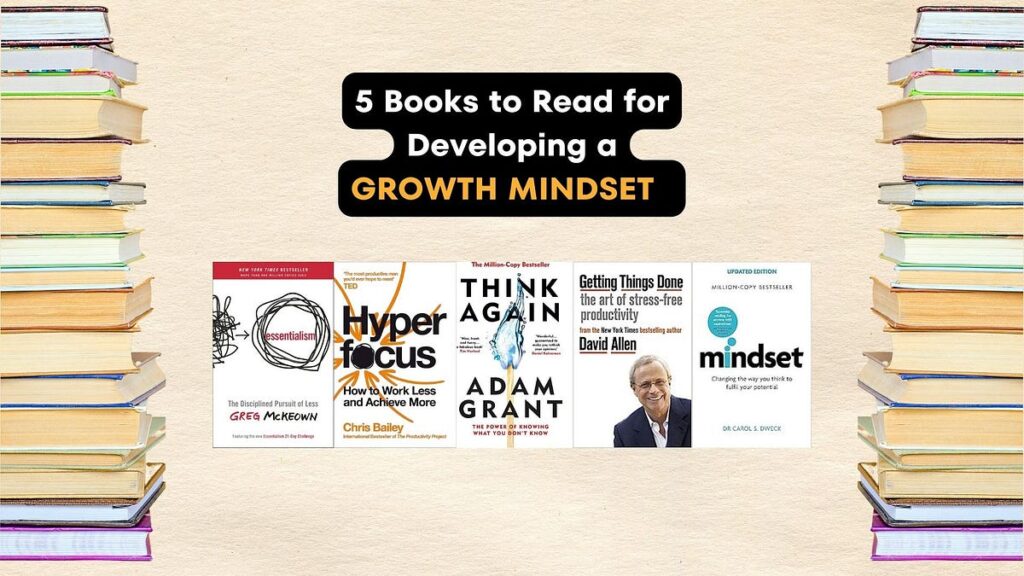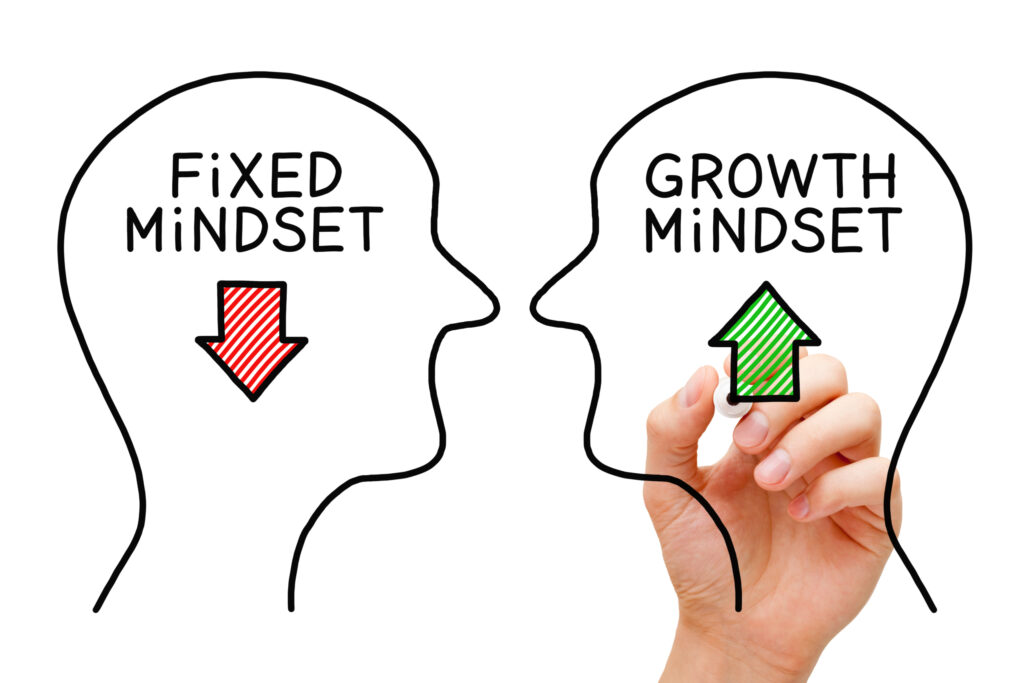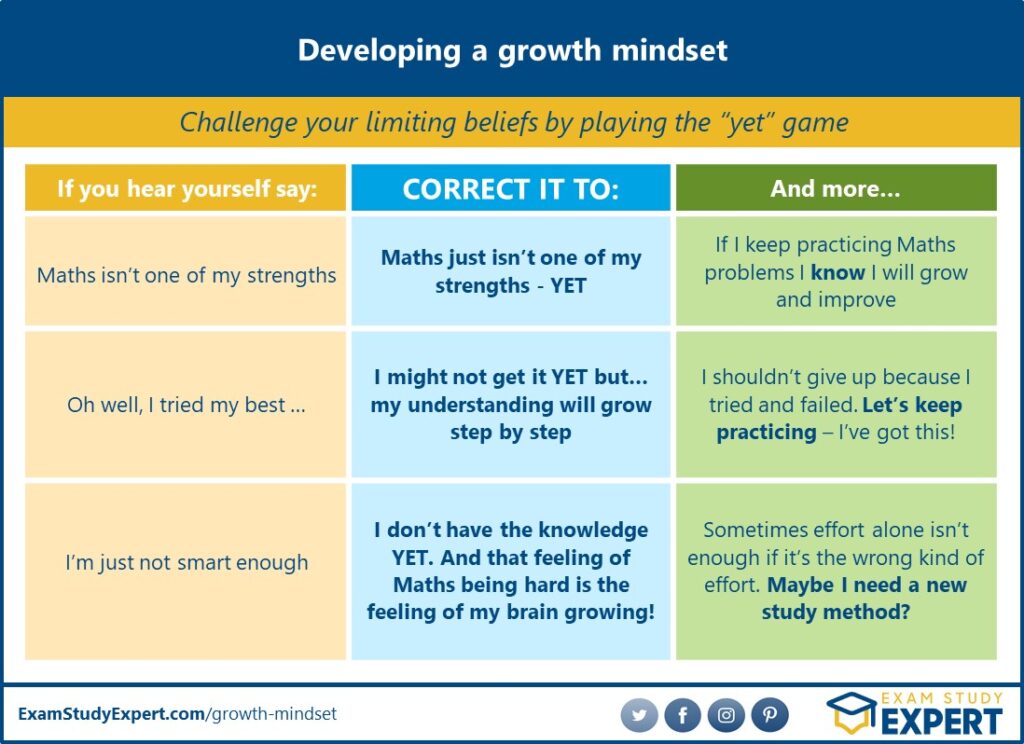Are you tired of feeling stuck in a rut and not reaching your full potential? Look no further than “How to cultivate a growth mindset and supercharge your productivity.” This life-changing program, available on Lifehackingtools, is designed to provide you with the tools and strategies you need to develop a growth mindset and unlock your true productivity potential. With expert guidance and practical tips, you’ll learn how to shift your mindset, overcome obstacles, and achieve remarkable results. Say goodbye to self-limiting beliefs and hello to a flourishing future. Get ready to unleash your inner productivity powerhouse!
How to Cultivate a Growth Mindset and Supercharge Your Productivity

This image is property of miro.medium.com.
1. Understanding the Concept of a Growth Mindset
1.1 The Difference Between a Growth Mindset and a Fixed Mindset
A growth mindset is the belief that intelligence, abilities, and skills can be developed and improved through dedication, hard work, and learning. On the other hand, a fixed mindset is the belief that intelligence and abilities are fixed traits, and individuals have a certain amount of talent that cannot be changed. Understanding the difference between these two mindsets is crucial in cultivating a growth mindset.
1.2 The Benefits of Adopting a Growth Mindset
Adopting a growth mindset brings numerous benefits to both personal and professional life. Firstly, it opens doors to new possibilities and opportunities as individuals are more willing to take on challenges and learn from them. Secondly, it enhances resilience and motivation in the face of setbacks and failures, as individuals see them as stepping stones to improvement rather than as indicators of their capabilities. Lastly, a growth mindset promotes a love for learning, fostering continuous self-improvement and personal growth.
1.3 Common Misconceptions about Growth Mindset
One common misconception about a growth mindset is that it solely focuses on praising effort over results. While effort is indeed important, a true growth mindset emphasizes the process of learning, seeking feedback, and embracing challenges, rather than just valuing hard work. Another misconception is that a growth mindset means there are no limits or boundaries. However, a growth mindset understands that individuals may have different starting points, but with effort and dedication, they can surpass their initial limitations.
1.4 How a Growth Mindset Affects Productivity
A growth mindset significantly impacts productivity by creating a positive mindset towards challenges and setbacks. People with a growth mindset are more likely to view obstacles as opportunities for growth and learning, leading to increased motivation and determination. Moreover, they are more open to seeking feedback, which allows for continuous improvement and enhanced performance. A growth mindset also encourages taking on new challenges and pushing oneself out of the comfort zone, which ultimately leads to increased productivity through personal and professional growth.
2. Recognizing and Challenging Your Fixed Mindset Beliefs
2.1 Identifying Fixed Mindset Beliefs
Recognizing fixed mindset beliefs is the first step towards cultivating a growth mindset. Common fixed mindset beliefs include thinking that intelligence and abilities are fixed traits, avoiding challenges for fear of failure, and viewing effort as futile if one has to put in too much of it. By becoming aware of these beliefs and thoughts, individuals can start challenging them and working towards adopting a growth mindset.
2.2 Replacing Fixed Mindset Beliefs with Growth Mindset Beliefs
Once fixed mindset beliefs have been identified, it is important to replace them with growth mindset beliefs. Instead of thinking that intelligence is fixed, one can adopt the belief that intelligence can be developed through hard work and dedication. Rather than avoiding challenges, individuals can embrace them as opportunities for growth and learning. Moreover, rather than thinking that effort is pointless, a growth mindset suggests that effort is the pathway to mastery and improvement.
2.3 Overcoming Self-Limiting Beliefs for Increased Productivity
Self-limiting beliefs pose a significant obstacle to productivity. These beliefs often arise from fixed mindset thinking and can hinder personal and professional growth. By challenging self-limiting beliefs and replacing them with growth mindset beliefs, individuals can overcome these obstacles and achieve higher levels of productivity. Recognizing that abilities can be developed and that failure is a part of the learning process helps individuals break free from self-imposed limitations and tap into their full potential.
3. Embracing Failure and Learning from Setbacks
3.1 Changing Your Perception of Failure
Failure is an integral part of the growth mindset journey. Instead of viewing failure as the end result or as a reflection of one’s abilities, a growth mindset sees it as a valuable opportunity for learning and improvement. By reframing failure as a temporary setback and focusing on the lessons it offers, individuals can capitalize on these experiences to enhance their productivity and continuous growth.
3.2 Seeing Setbacks as Opportunities for Growth
Setbacks and challenges are inevitable in life, both personally and professionally. However, individuals with a growth mindset perceive setbacks as opportunities for growth and development. Rather than becoming discouraged or giving up, they adapt their strategies, seek alternative solutions, and learn from their mistakes. By embracing setbacks and using them as stepping stones, individuals can accelerate their productivity and achieve greater success.
3.3 The Role of Resilience in Cultivating a Growth Mindset
Resilience plays a vital role in cultivating a growth mindset and boosting productivity. Resilience allows individuals to bounce back from failures and setbacks quickly, enabling them to maintain focus and motivation. Developing resilience involves staying optimistic, reframing challenges as opportunities, and being persistent in the face of adversity. By building resilience, individuals can overcome obstacles and stay on track towards their goals, ultimately leading to increased productivity.
3.4 Strategies for Bouncing Back from Failure and Staying Productive
When facing failure, it is essential to have strategies in place to bounce back and maintain productivity. These strategies include staying positive and focusing on the lessons learned, seeking support from mentors or peers, and adjusting one’s approach or strategies. Additionally, consistently reflecting on setbacks and brainstorming alternative solutions can help individuals recover quickly, learn from their mistakes, and stay productive in the face of challenges.
4. Cultivating a Mindset of Continuous Learning and Improvement
4.1 The Importance of Lifelong Learning
A growth mindset is closely tied to a commitment to lifelong learning. Embracing a mindset of continuous learning ensures that individuals are consistently seeking knowledge, adapting to new situations, and staying relevant in a rapidly changing world. Lifelong learning enhances productivity by fostering adaptability, creativity, and problem-solving skills.
4.2 Seeking New Challenges and Opportunities
To cultivate a growth mindset, individuals must actively seek new challenges and opportunities for growth. Stepping out of the comfort zone and taking on unfamiliar tasks or projects can push individuals to learn and develop new skills. Seeking new challenges also opens doors to innovative solutions and fosters a sense of excitement and motivation, leading to increased productivity.
4.3 Building a Habit of Reflection and Self-Assessment
Reflection and self-assessment are essential components of cultivating a growth mindset. Regularly reflecting on past experiences and assessing one’s strengths and weaknesses allows individuals to identify areas for improvement and develop strategies for personal and professional growth. By cultivating a habit of reflection and self-assessment, individuals can fine-tune their productivity and continuously optimize their performance.

This image is property of www.stevegutzler.com.
5. Fostering a Positive and Growth-Oriented Environment
5.1 Surrounding Yourself with Supportive and Like-Minded Individuals
The environment we are in plays a crucial role in shaping our mindset and productivity. To foster a growth mindset, it is essential to surround yourself with supportive and like-minded individuals who share a similar drive for personal growth and improvement. These individuals can provide encouragement, support, and valuable insights, creating a positive environment that nurtures productivity.
5.2 The Impact of Positive Reinforcement on Mindset and Productivity
Positive reinforcement is a powerful tool for cultivating a growth mindset and enhancing productivity. By acknowledging and celebrating achievements, both big and small, individuals are motivated to continue their efforts and strive for further improvement. Positive reinforcement helps individuals maintain a positive mindset, boosts self-confidence, and increases productivity by creating a sense of accomplishment and fulfillment.
5.3 Creating an Environment that Encourages Growth and Innovation
To supercharge productivity, it is important to create an environment that fosters growth and innovation. This can be done by promoting a culture of learning, encouraging collaboration and creative thinking, and providing opportunities for personal and professional development. By establishing an environment that values growth and innovation, individuals are empowered to unleash their full potential and achieve higher levels of productivity.
6. Practicing Mindfulness and Self-Awareness
6.1 The Connection Between Mindfulness and a Growth Mindset
Mindfulness is the practice of being fully present in the current moment and aware of one’s thoughts, feelings, and surroundings. Cultivating mindfulness can deepen the growth mindset by enhancing self-awareness, reducing stress, and increasing focus. By practicing mindfulness, individuals can stay grounded in the present moment, eliminate distractions, and maintain a clear and focused mindset to optimize productivity.
6.2 Techniques for Developing Self-Awareness
Developing self-awareness is a key component of cultivating a growth mindset. Techniques for enhancing self-awareness include journaling, meditation, seeking feedback from others, and reflecting on personal values and beliefs. These practices allow individuals to gain insights into their thoughts, emotions, and behaviors, enabling them to identify patterns, make intentional choices, and develop a growth-oriented mindset.
6.3 Using Mindfulness to Stay Focused and Productive in the Present Moment
Implementing mindfulness practices into daily routines can significantly enhance focus and productivity. By staying focused on the present moment, individuals can minimize distractions and procrastination, optimize their decision-making processes, and engage fully in tasks at hand. Mindfulness promotes a clear and calm mindset, allowing individuals to tackle challenges with clarity and efficiency, ultimately boosting productivity.

This image is property of examstudyexpert.com.
7. Setting Actionable Goals and Tracking Progress
7.1 The Importance of Setting Goals Aligned with a Growth Mindset
Setting goals is a powerful strategy for cultivating a growth mindset and increasing productivity. Goals provide direction, focus, and motivation, while aligning them with a growth mindset ensures that they are challenging yet attainable. By setting goals that stretch individuals beyond their comfort zones, they are encouraged to embrace challenges, develop new skills, and continuously improve.
7.2 Strategies for Setting Realistic and Challenging Goals
When setting goals, it is important to strike a balance between realism and challenge. Strategies for setting realistic and challenging goals include breaking them down into smaller, actionable steps, ensuring they align with personal values and priorities, and incorporating measurable milestones to track progress. By setting goals that are both attainable and motivating, individuals can maintain high levels of productivity and achieve meaningful results.
7.3 Tracking Progress and Celebrating Achievements
Tracking progress is crucial for maintaining motivation and productivity. Regularly monitoring and measuring progress against set goals allows individuals to stay on track and make necessary adjustments. Additionally, celebrating achievements, both big and small, provides a sense of accomplishment and reinforcement, further fueling the growth mindset and encouraging continued productivity.
8. Embracing Challenges and Stepping out of Your Comfort Zone
8.1 Overcoming the Fear of Failure and Taking Calculated Risks
One of the key components of a growth mindset is embracing challenges and taking risks. Overcoming the fear of failure is vital in this process. Individuals need to understand that failure is not a reflection of their worth or abilities, but rather an opportunity for learning and growth. By taking calculated risks, individuals can push their boundaries, expand their comfort zones, and propel themselves towards higher levels of productivity.
8.2 Pushing Past Self-Imposed Limitations
Many self-imposed limitations can hinder personal and professional growth. By cultivating a growth mindset, individuals can challenge these limitations and push past them. Recognizing that one’s abilities can be developed and improved allows individuals to break free from the constraints they have placed on themselves. By embracing challenges and stepping outside of their comfort zones, individuals can unlock their true potential and achieve greater levels of productivity.
8.3 The Role of Embracing Challenges in Personal and Professional Growth
Embracing challenges is essential for personal and professional growth. By actively seeking out and embracing new challenges, individuals can develop new skills, enhance problem-solving abilities, and increase their adaptability. Embracing challenges not only broadens one’s skillset but also fosters resilience and confidence, leading to improved productivity and overall growth.

This image is property of www.thegrowthcoach.com.
10. Applying a Growth Mindset to Supercharge Your Productivity
10.1 Enhancing Focus and Concentration
A growth mindset can significantly enhance focus and concentration. By embracing challenges and viewing them as opportunities for growth, individuals can direct their focus and attention towards achieving their goals. When faced with distractions or setbacks, a growth mindset allows individuals to stay resilient, maintain focus, and overcome obstacles, ultimately increasing productivity.
10.2 Leveraging Failures and Setbacks for Motivation
Failures and setbacks can serve as powerful sources of motivation when approached with a growth mindset. Rather than becoming discouraged or giving up, individuals can leverage these experiences as stepping stones towards improvement. By analyzing the lessons learned from failures and setbacks, individuals can channel their motivation and drive towards increased productivity and continuous growth.
10.3 Applying a Growth Mindset to Boost Creativity and Innovation
A growth mindset fuels creativity and innovation. By embracing challenges, seeking new perspectives, and continuously learning, individuals can expand their creativity and generate innovative solutions to complex problems. A growth mindset encourages individuals to think outside the box, experiment with new ideas, and embrace failure as part of the learning process. This approach fosters a culture of innovation and increases productivity through creative problem-solving.
10.4 Developing Resilience to Overcome Obstacles and Stay Productive
Resilience is a key attribute of individuals with a growth mindset. Developing resilience allows individuals to bounce back from setbacks, adapt to change, and remain productive and focused amidst challenges. By cultivating a mindset that views obstacles as temporary and opportunities for growth, individuals can navigate challenges and obstacles with strength, ultimately supercharging their productivity.
In conclusion, cultivating a growth mindset is essential for increasing productivity and unlocking one’s full potential. By understanding the concept of a growth mindset, recognizing and challenging fixed mindset beliefs, embracing failure and setbacks, fostering continuous learning and improvement, creating a positive and growth-oriented environment, practicing mindfulness and self-awareness, setting actionable goals, and embracing challenges, individuals can harness the power of a growth mindset to supercharge their productivity and achieve greater success in all aspects of life.